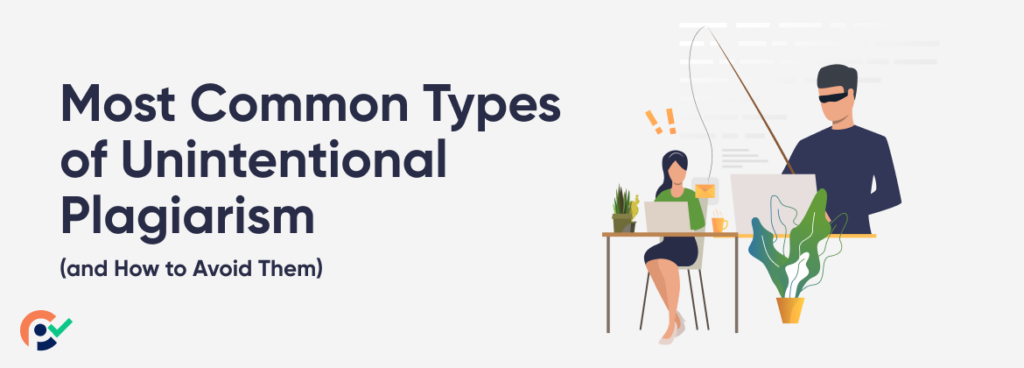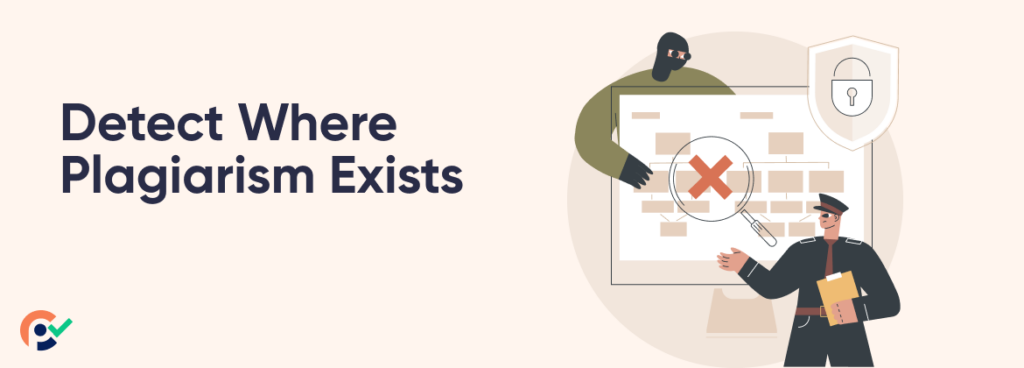
Most Common Types of Unintentional Plagiarism (and How to Avoid Them)
If you have been involved in any kind of writing task, you’ll have an idea of how important it is to jot down plagiarism-free content. Whether you are working on an academic assignment or writing for a blog, you must make sure your work doesn’t involve any sort of plagiarism. It is because plagiarism is considered an offense that can bring several negative consequences. For instance, a student caught with plagiarism might face suspension for some time or get expelled, depending upon the seriousness of the offense.
For this reason, avoiding plagiarism is the utmost duty that every writer and student must fulfill. While writing any type of content, you may be fully focused on completing
the task on your own, but the risk of unintentional plagiarism always stay there!
The most common definition you will find for unintentional plagiarism is when a writer doesn’t intentionally duplicate anyone’s work. But there is more that you need to know about it, as there are several ways that are perceived as unintentional plagiarism. If you’re eager to know about them, then go through the types discussed below. We will also highlight the ways you can adapt to avoid committing this sin. So let’s get started without any further ado!
Common Types of Unintentional Plagiarism
Improper Citations
Using someone else’s work and citing it won’t help you bypass plagiarism. The citations are only allowed for those parts of content that contain common knowledge and must be used as it is. Many people aren’t aware of it, and they end up including improper citations. It is generally considered unintentional plagiarism, but it must be avoided in any case! If you’re unfamiliar with citing sources, using a free citation generator can be beneficial for your essays, presentations, and other projects.
Missing Quotations
When the students are fully involved in the creation of assignments, they often forget to quote the other author’s exact words while the citation is available for its counter. This error is also a common type of unintentional plagiarism. You cannot afford to leave such mistakes in your text; hence, you must make your text go through a plagiarism checker and find out the phrases that aren’t quoted properly.
Inadequate Paraphrasing
Paraphrasing is a way adopted by many students to avoid plagiarism in their assignments. The basic aim of paraphrasing is to present another author’s work in your own words to present an idea in front of the readers to make it easily understandable for them. Many people confuse paraphrasing with the replacement of some words with their synonyms, which isn’t a correct approach. This sort of paraphrasing makes your work come under the offense of plagiarism. To avoid it, you must paraphrase adequately and present information in your own words while maintaining the context of the original content.
Copying Your Own Work
The ideas or examples you have shared and publicized previously cannot be used even in your own work. If you copy your own work, it will be called self-plagiarism, which is also a type of unintentional plagiarism. You must cite the source properly, even if you are its author.
How to Avoid Unintentional Plagiarism?
Now that you have got to know about the types of unintentional plagiarism, you can avoid it by following the simple tips given below.
Detect Where Plagiarism Exists

The first step you need to take to avoid plagiarism is to figure out where exactly plagiarism exists in your content. For that matter, you can use an online plagiarism checker that provides you with a detailed analysis of your text and lets you know the phrases, sentences, and paragraphs that are plagiarized. With the help of plagiarism software, you can easily find phrases that you have forgotten to quote. It will also provide assistance in locating the sources from where your text matches. You can get your hands on an in-depth plagiarism scan report, which you can save as proof of originality for your work.
Paraphrase Efficiently
Another important tip you can follow to avoid unintentional plagiarism is effective paraphrasing of your text. If you have already spent ample time curating content and you no longer wish to invest more effort in getting it plagiarism-free, then you can get your hands on a paraphrasing tool. A paraphraser is an AI-based smart utility that conducts the rephrasing process on your behalf and provides you with unique content that contains no traces of duplication. This facility provides you with an easy way to combat plagiarism and keep yourself away from its negative consequences.
Final Words
Undoubtedly, writing isn’t an easy task, but you can take the assistance of online tools to get it a little easier. Avoiding unintentional plagiarism may seem like an undoable task, but by following the tips discussed above, you can easily get rid of this nuisance. Plagiarismchecker.co is offering you online tools that are helpful for writers, students, and teachers. You can try using them for free and steer clear of plagiarism like a pro!







